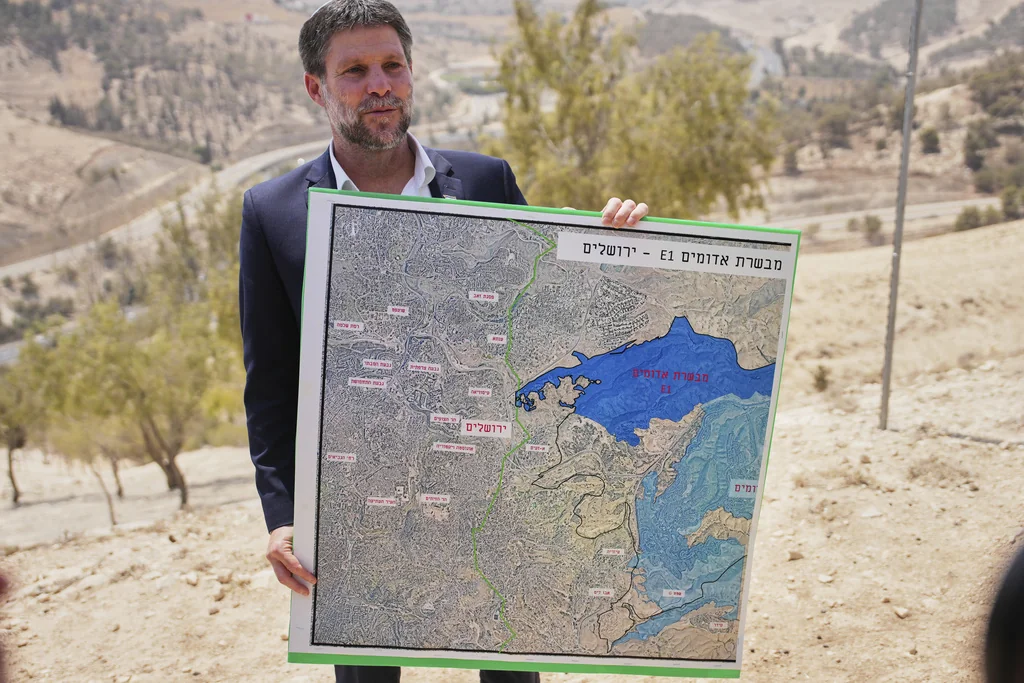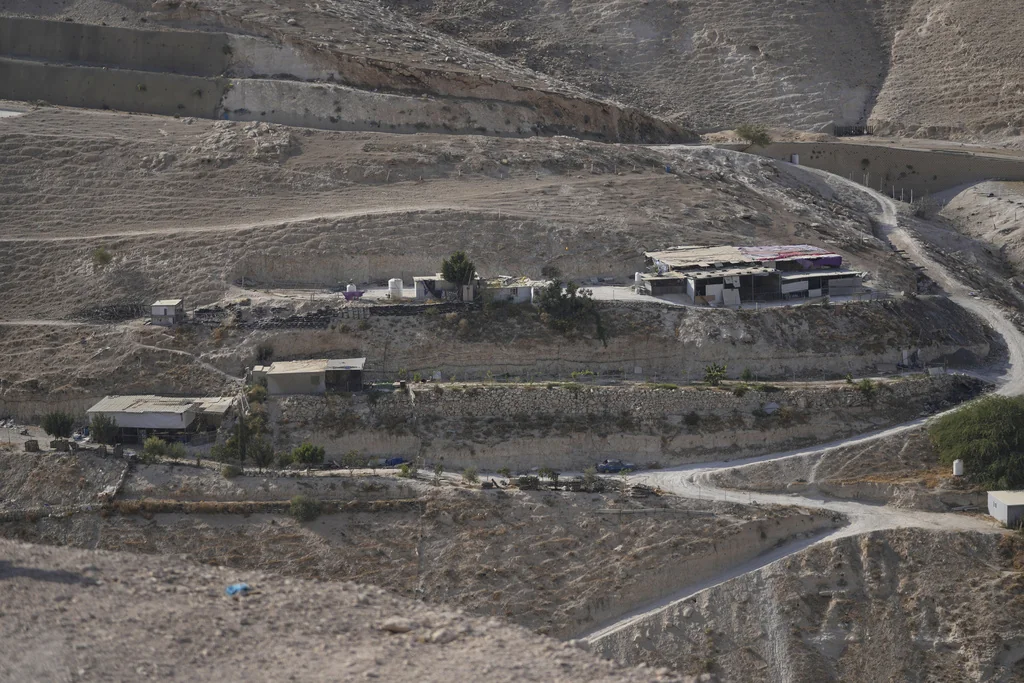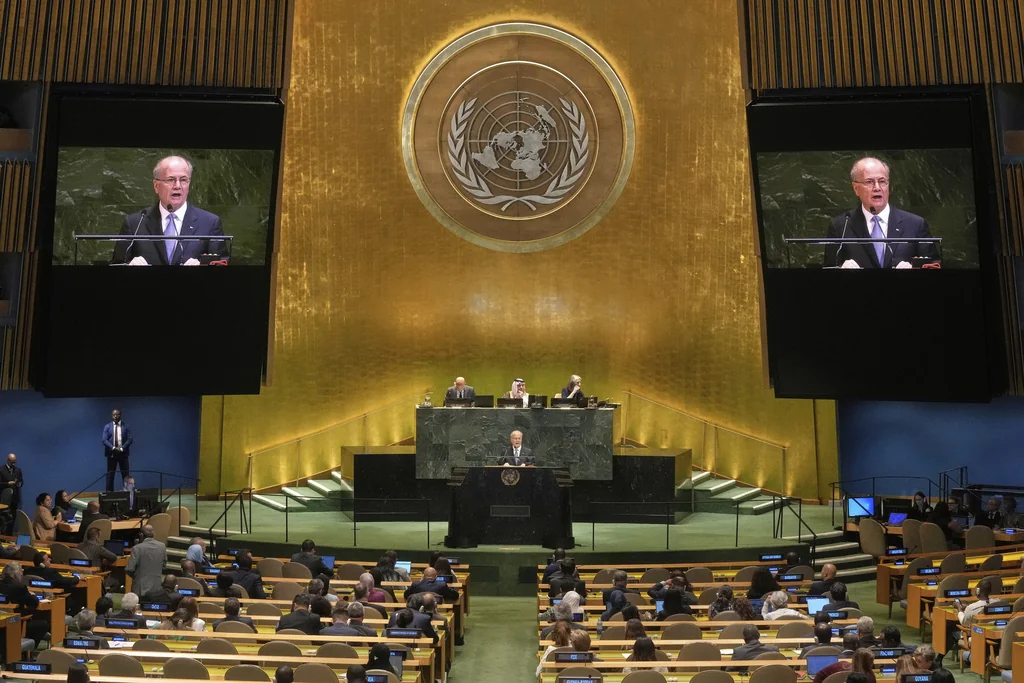As multiple world leaders prepare to extend recognition of sovereignty to Palestinians at the United Nations General Assembly next month, Israeli officials are claiming that soon there will be no state to recognize.
The West Bank — sometimes referred to in Israel as Judea and Samaria, its Biblical name — is an approximately 2,185 square mile territory west of the Jordan River. It is home to over 3 million Palestinians, as well as hundreds of thousands of Israeli settlers whose right to continue their expansion is at the center of ongoing international disputes.
Ministers in the Israeli government have in recent months pushed for more rapid development of these settlements, explicitly as a rebuke to claims of Palestinian sovereignty.
The latest of these plans is the E1 development project linking the Maale Adumim settlement to occupied East Jerusalem, which Finance Minister Bezalel Smotrich announced on Thursday and publicly celebrated as a death blow to hopes for a Palestinian state.
“After decades of international pressure and freezes, we are breaking conventions and connecting Maale Adumim to Jerusalem,” said Smotrich. “This is Zionism at its best — building, settling, and strengthening our sovereignty in the Land of Israel.”

“This reality finally buries the idea of a Palestinian state, because there is nothing to recognize and no one to recognize,” Smotrich added. “Anyone in the world who tries today to recognize a Palestinian state — will receive an answer from us on the ground.”
The Palestinian Ministry of Foreign Affairs lamented the E1 plans on Thursday, calling the initiative a “continuation of the [Israeli] occupation’s plans to undermine the opportunity to establish the Palestinian state on its homeland, weaken its geographical and demographic unity, entrench the division of the West Bank into isolated areas surrounded by a sea of settlements, and facilitate the completion of their annexation.”
European Union foreign policy chief Kaja Kallas decried the settlement expansion plan as a “breach of international law.”
“The EU rejects any territorial change that is not part of a political agreement between involved parties. So annexation of territory is illegal under international law,” European Commission spokesperson Anitta Hipper said.
The United Nations was similarly outraged at how the Israeli expansion would “put an end to prospects of a two-state solution.”
“Settlements go against international law,” said UN spokesperson Stephane Dujarric, adding that the move would only “further entrench the occupation.”
The British Empire gained control over the area that would become Israel and the Palestinian territories — then known as Mandatory Palestine — following their defeat of the Ottoman Empire in World War I. The region had an Arab majority living alongside a Jewish minority.
In 1917, the empire issued the Balfour Declaration, which committed to the creation of a “national home for the Jewish people” in the region. This spurred waves of Jewish immigration to Mandatory Palestine over the next several decades, which was later bolstered by Jewish refugees fleeing the Holocaust in Europe.
The United Nations issued a partition plan in 1947 that suggested the creation of two states in the territory, one Jewish and one Arab.

The Arabs living in Mandatory Palestine and the leaders of neighboring Arab countries rejected the proposal because it gave a larger amount of land to the Jewish population despite Arabs being the majority.
On May 14, 1948, Jewish leaders declared the independence of the State of Israel without the clear delineation of borders but expressed openness to the UN Partition Plan. Immediately following their declaration, Israel was attacked on all sides by Egypt, Jordan, Iraq, Syria, and Lebanon.
When the fighting ended in 1949, Israel was left in control of the majority of the territory, while Egypt had gained control of Gaza and Jordan had taken the West Bank and East Jerusalem.
During this time, an estimated 700,000 Palestinians fled Israel-controlled territories and Jews were expelled from Muslim countries in the region— further segregating the countries along ethnic lines.
The boundaries were once again changed during the Six-Day War in 1967, when Israel fought against Egypt, Syria and Jordan.
When the conflict ended, Israel had taken control of Gaza, East Jerusalem, and the West Bank. More than a million Palestinians living in these areas came under Israeli occupation, creating the modern geopolitical discord.
While there have been false starts in diplomacy that have led the Israeli government to offer forms of autonomy to the Palestinians — such as civil self-governance through the Palestinian Authority, agreed to under the Oslo Accords in 1993 — Israel has never formally transferred territory gained from the British Mandate to Palestinian sovereignty.
Orde Kittrie, a law professor at Arizona State University and senior fellow at the Foundation for Defense of Democracies, spoke to the Washington Examiner about how these evolving borders have made the international law surrounding their jurisdiction.

“The legal arguments made by Israeli advocates of annexing the West Bank include that Israel has the strongest legal claim to the territory, first and foremost because it inherited all of the land under the local British mandate at the time of Israel’s creation in 1948, including the West Bank,” Kittrie said.
Kittrie, who previously served as an attorney at the U.S. State Department and has published a book about the use of international law as a weapon of war, is not personally convinced the annexation plan is in Israel’s best interests.
“Opinions in Israel differ as to the wisdom of annexing the West Bank,” Kittrie explained. “I personally am very skeptical that it is in the long term strategic interest of Israel to annex the West Bank, regardless of the strength of Israel’s legal claim to the territory.”
Natasha Hausdorff, legal director for U.K. Lawyers for Israel, explained this position to the Washington Examiner regarding Israeli claims to all of British Mandate Palestine. The argument centers on Uti possidetis juris — a principle in international law that dictates a newly created state should maintain the same administrative borders as those that preceded it.
“This is the rule that determines what the state’s borders are at the moment of independence — what the court called the critical date, the declaration of independence,” Hausdorff told the Washington Examiner. “And it talked about a photograph or a snapshot of the territory at that date that tells you what the international borders are. And what the rule says is that the new state takes on the pre-existing administrative lines of whatever unit preceded it, as its internationally recognized borders.”
The International Court of Justice emphasized the importance of the doctrine in 1986 when it handled a frontier dispute between Burkina Faso and Mali.
“Now, this is a default rule. It applies wherever there is no agreement to the contrary. So where, for example, partition was implemented in India and Pakistan, there can be an alternative agreement that displaces the default rule,” she continued. “But wherever there is no such agreement to the contrary, this is the rule that applies, as a matter of customary international law. And in Israel’s case, as it was the only state to emerge from what remained of the British mandate for Palestine, those administrative lines were its borders.”
ISRAEL ANNOUNCES WEST BANK SETTLEMENT THAT ‘FINALLY BURIES’ PALESTINIAN SOVEREIGNTY
“The question as to the status of the territory depends on what Israel’s borders were at the critical date, the moment of declaration of independence on the 14th of May 1948,” Hausdorff explained. “And I have spent the last 10 years talking to leading academics in the field. No one can explain to me why uti possidetis juris would not apply to Israel.”
The United Nations has continued to emphasize its position that a two-state solution is a legal necessity for a just outcome in the region — such as in 2016 when the Security Council unanimously passed Resolution 2334, which declared Israeli settlement activity in the Palestinian territories as a “flagrant violation” of international law.

Approximately 164 out of the UN’s 193 member countries recognize Palestine as a sovereign country and several more are expected to extend recognition at the General Assembly next month. The international body remains the primary authority to which Palestinian activists appeal.
Israeli authorities claim that none of the resolutions or partition plans have been binding, and assert that their nation came to occupy the Palestinian territories in a war of self-defense. Additionally, advocates point to Arab leaders’ rejection of past two-state proposals that Israel was willing to accept, before the territories became disputed.
